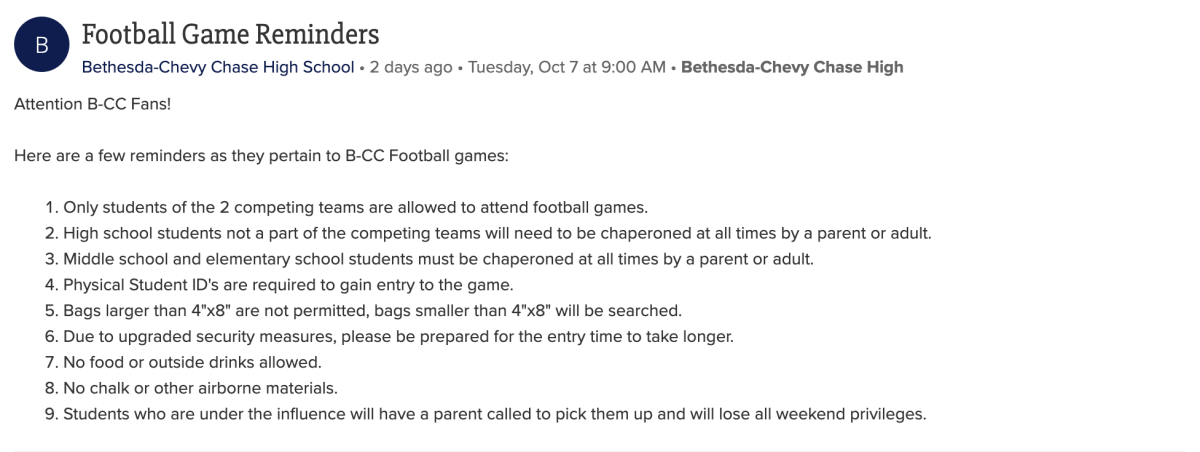On Tuesday, April 1st, 2025, Dr. Mooney announced that vape detectors have been installed and activated in all school bathrooms. These devices detect particulate matter associated with vape pens, tobacco, and other illicit substances and immediately alert security staff when such particles are present.
The installation is part of a larger initiative funded by Montgomery County Public Schools, which allocated $2 million toward vape detectors in high schools. The funding stems from a $462 million settlement reached in April 2023 between six states, including Maryland, and the e-cigarette company Juul.
In his announcement, Dr. Mooney noted that B-CC and MCPS continue to provide substance use intervention services to support students struggling with addiction. He also reminded the school community of the disciplinary consequences for using illicit substances on school property.
This latest safety measure follows a controversial policy from the 2023–2024 school year, when the administration began locking most bathrooms during lunch periods in attempts to limit drug use and students skipping classes. That policy was rescinded for the 2024–2025 school year after significant student pushback.
While the long-term impact of the vape detectors on student behavior remains to be seen, some staff have already observed changes. History teacher Ms. Pasquale reported less noise and fewer disruptions outside her classroom since the detectors were turned on.
Still, some parents and students question the scale of the issue. According to the Centers for Disease Control and Prevention, 7.8% of high school students reported using e-cigarettes in 2024. Among those who had ever tried e-cigarettes, 43.6% were current users. In 2020, 63.9% of those students reported wanting to quit.
The implementation of vape detectors does still present certain challenges. False alarms can be triggered by aerosol-based products like deodorant, sunscreen, or hair spray. Additionally, identifying which student is responsible for vaping in a given bathroom remains a logistical obstacle for school administrators.
Despite these concerns, the detectors are intended to support student wellness by identifying those in need of intervention while minimizing disruptions for others. If successful, the hope is that all students will have a more peaceful bathroom experience and that they can do so in a safer and more respectful environment. As B-CC continues to navigate the balance between student privacy and school safety, the community will be watching to see how these new measures affect daily life at school.









































